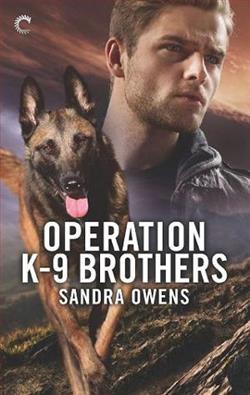Page 2 of The Kill List
Once the decision was taken that Saddam Hussein’s invasion of Kuwait could not be allowed to stand, a grand coalition was formed, and ranged along the Iraqi/Saudi Arabian desert border from the Arabian Gulf in the east to the Jordanian border in the west.
The U.S. Marines came in the form of the Marine Expeditionary Force under General Walter Bloomer, and this encompassed the 1st Marine Division, commanded by General Mike Myatt. A very long way down the pecking order was 2nd Lt. Kit Carson. The division was posted to the extreme eastern end of the Coalition line, with only the blue waters of the Gulf to its right.
The first month, stupefyingly hot August, was a time of feverish activity. The entire division, with its armor and artillery, had to be disembarked and posted along the sector to be covered. An armada of freight ships arrived at the hitherto sleepy oil port of al-Jubail to discharge the impedimenta required to equip, lodge and keep supplied an entire U.S. division. It was not until September that Kit Carson got his assignment interview. It was with an acid-tongued veteran major, probably passed over at that rank and not happy about it.
Major Dolan read slowly through the new officer’s file. Finally, his eye caught something unusual. He looked up.
“You spent time in London as a kid?”
“Yessir.”
“Weird bastards.” Maj. Dolan completed his perusal of the file and closed it. “Parked next door to our west is the British Seventh Armoured Brigade. They call themselves the Desert Rats. Like I said, weird. They call their own soldiers rats.”
“Actually, it’s a jerboa, sir.”
“A what?”
“A jerboa. A desert animal like a meerkat. They got the tag fighting Rommel in the Libyan desert in World War Two. He was the Desert Fox. The jerboa is smaller but elusive.”
Major Dolan was less than impressed.
“Don’t get smart with me, Lieutenant. Somehow we have to get along with these Desert Rats. I am proposing General Myatt send you over to them as one of our liaison officers. Dismiss.”
The Coalition forces had to spend five more months sweltering in that desert while the combined allied air forces achieved the fifty percent “degrading” of the Iraqi army that Commanding General Norman Schwarzkopf demanded before he would attack. For part of that time, after reporting to the British general Patrick Cordingley, commanding the 7th Armoured, Kit Carson liaised between the two forces.
Very few American soldiers were able to establish either interest in, or empathy with, the native Arab culture of the Saudis. Carson, with his natural curiosity, was an exception. In the ranks of the British, he found two officers who had a smattering of Arabic and from them memorized a handful of phrases. On visits to al-Jubail, he listened to the five daily calls to prayer and watched the robed figures prostrate themselves time and again, forehead to the ground, to complete the ritual.
He made a point of greeting Saudis he had occasion to meet with the formal “Salaam aleikhem” (Peace be unto you) and learned to respond with the reply “Aleikhem as-salaam” (And unto you be peace). He noted their jolt of surprise that any foreigner should bother and the friendliness that followed.
After three months, the British brigade was increased to a division, and Gen. Schwarzkopf moved the British farther east, to the chagrin of Gen. Myatt. When the ground forces moved at last, the war was short, sharp and brutal. The Iraqi armor was blown away by British Challenger II tanks and the American Abrams. Domination of the air was total, as it had been for months.
Saddam’s infantry had been pulverized by carpet bombing in their trenches by U.S. B-52 bombers and threw up their hands in droves. The onslaught for the U.S. Marines was a charge into Kuwait, where they were cheered, and a last run to the Iraqi border, where higher authority ordered that they should stop. The ground war took just five days.
Lieutenant Kit Carson must have done something right. On his return in the summer of 1991 he received the honor of transfer to the 81mm mortar platoon as the best lieutenant in the battalion. Clearly marked out for higher things, he then did something, for the first time but not the last time in his life, unconventional. He applied for and received an Olmsted Scholarship. When asked why, he replied that he wanted to be sent to the Defense Language Institute, located in the Presidio at Monterey, California. Pressed further, he admitted he wanted to master Arabic. It was a decision that would later change his entire life.
His somewhat puzzled superiors conceded his request. With the Olmsted under his belt, he spent his year at Monterey and, for his second and third year, was given a two-year internship at the American University in Cairo. Here he found he was the only U.S. Marine and the only serviceman who had ever seen combat. While he was there, on February 26, 1993, a Pakistani named Ramzi Yousef tried to blow up one of the towers of the World Trade Center, Manhattan. He failed, but, ignored by the American establishment, he had fired the first Fort Sumter shot of the Islamic Jihad against the United States.
There were no electronic newspapers in those days, but Lt. Carson could follow the unfolding investigation across the Atlantic by radio. He was puzzled, intrigued. Eventually, he paid a call upon the wisest man he had come across in Egypt. Professor Khaled Abdulaziz was a don at the al-Azhar University, one of the greatest centers in all Islam for Koranic studies. Occasionally he gave visiting lectures at the American University. He received the young American in his rooms on campus at al-Azhar.
“Why did they do it?” asked Kit Carson.
“Because they hate you,” said the old man calmly.
“But why? What have we ever done to them?”
“To them personally? To their countries? To their families? Nothing. Except perhaps distribute dollars. But that is not the point. With terrorism, that is never the point. With terrorists, whether al-Fatah or Black September or the new, supposedly religious breed, the rage and the hatred come first. Then the justification. For IRA patriotism, for Red Brigade politics, for Salafist-Jihadist piety. An assumed piety.”
The professor was preparing tea for two on his small spirit stove.
“But they claim to follow the teachings of the Holy Koran. They claim that they are obeying the Prophet Muhammad. They claim they are serving Allah.”
The old scholar smiled as the water boiled. He had noticed the insertion of the word “Holy” in front of Koran. A courtesy, but a pleasing one.
“Young man, I am what is called hafiz. That is one who has memorized all 6,236 verses of the Holy Koran. Unlike your Bible, which was written by hundreds of authors, our Koran was written—dictated, actually—by one. And yet there are passages that seem to contradict each other.
“What the Jihadists do is to take one or two phrases out of context, distort them a little more and then pretend they have divine justification. They do not. There is nothing in all our Holy Book that decrees we must slaughter women and children to please the one we call Allah the Merciful, the Compassionate. All extremists do that, including Christian and Jewish ones. Do not let our tea go cold. It should be drunk piping hot.”
“But, Professor, these contradictions. Have they never been addressed, explained, rationalized?”















